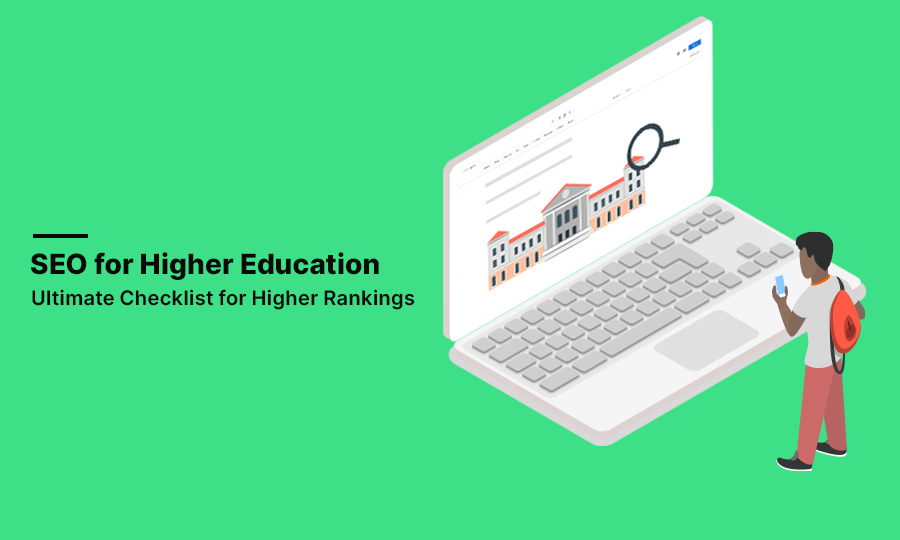As a higher education Institution, you might offer the best degree programs and courses that students are seeking. However, to enroll at your academic institution, students need to know about your existence. As students tend to search most things on the best, you can rely on SEO for higher education to skyrocket your ranks on the search engine results.
A ranking higher on the SERPs will render your website more discoverable. Students can easy spot the necessary information
What is SEO for Higher Education?
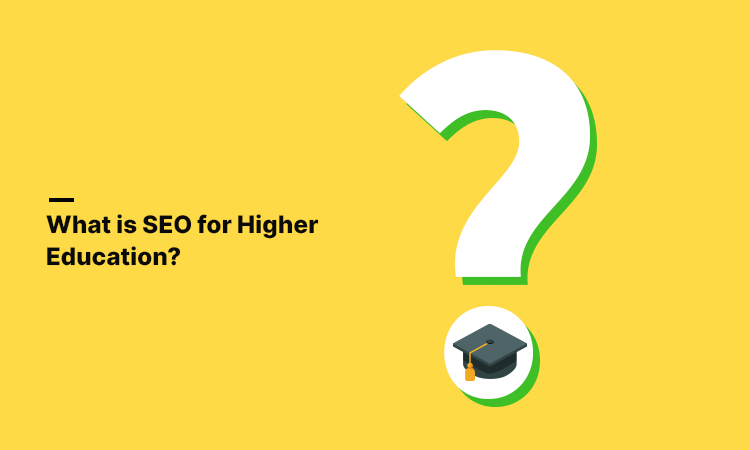
SEO for higher education means structuring website content, meta description, and design that boosts up the search engine ranking of the web page.
It is a digital marketing strategy that targets potential students of specific categories. For example, if you open an engineering college in California, SEO can help you target students from surrounding regions with geo-targeting features.
Search engine optimization generates organic or direct traffic by improving the search rankings. Practices of higher education SEO involve keyword research, crafting content, meta descriptions, building backlinks, and managing the various technical aspects of a website.
5 Benefits for Higher Education SEO for Colleges & Universities
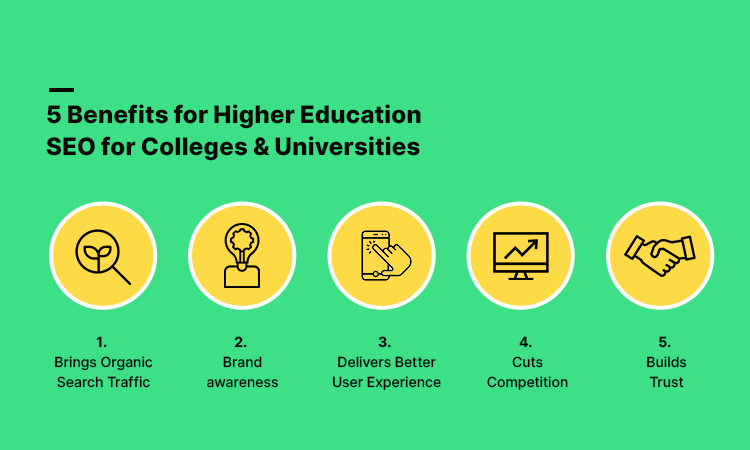
A sustainable SEO for higher education benefits institutions in more than one way. Let’s take a look at the various benefits of search engine optimization for higher learning institutions;
1. Brings Organic Search Traffic
If you are offering higher education programs, good online visibility is essential. A higher website ranking will render your website more discoverable for students looking for similar educational programs. It brings a better volume of organic traffic to your web page, which translates to more student enrolment.
2. Brand awareness
As your website ranks higher, more students will know about your college. They would learn about your college’s various degree programs and educational courses. SEO helps register the name of an institution in the students’ minds, making them consider that college or university as an option when applying for higher learning.
3. Delivers Better User Experience
SEO optimizes the user experience. Search engines rank webpages containing articles relevant to the student’s search intent, are good to read, and abide by the guidelines of off-gage and technical SEO. Optimizing SEO ensures that your website offers the best user experience to potential students looking for suitable education programs. SEO can uplift the on-page time and minimize the bounce rate considerably.
4. Cuts Competition
Most educational institutions have websites. However, over half of them do not have an established SEO strategy. If you optimize your website, it will put you ahead of your competitors. SEO will help your website rank higher. It means better online visibility and student enrolment ratio.
5. Builds Trust
Students search the internet for all information these days. Having website that rank on the first page will not only give a high click through rate, but also will give all the informations a prospective student is seeking. An education website that ranks builds trust in the eyes of the student.
Higher Education SEO Tips for Ruling the Search Rankings!
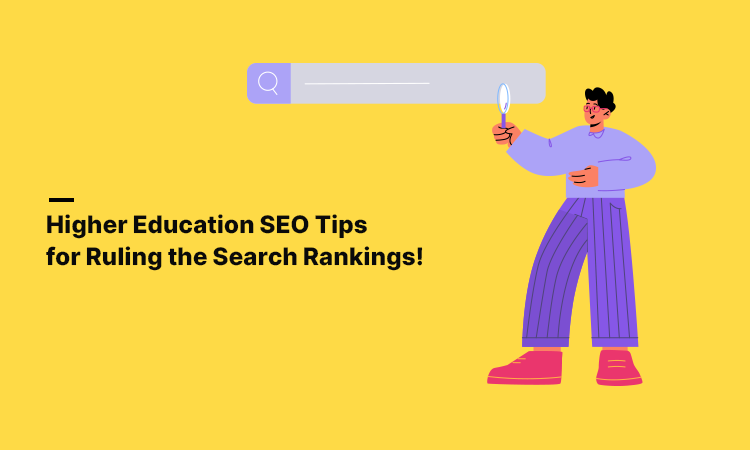
We are here with proven SEO techniques that work for search engine optimization of higher education websites. If you are a beginner wanting to learn the SEO techniques for dominating the SERPs, we are here with an unbeatable checklist on higher education SEO.
Let’s walk you through these tips to give you a comprehensive idea;
1. On-Page SEO Checklist: Drive Organic Traffic to Your Website
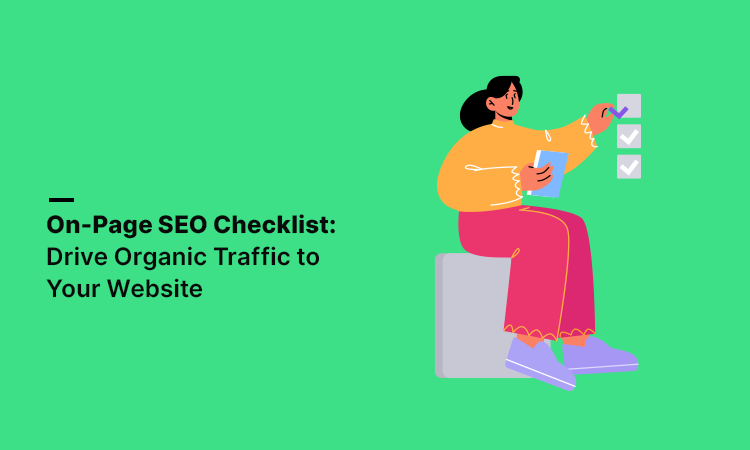
The face of higher education establishments should be sterling! It should be precise, provide accurate information, and convince potential students to join the institution.
If you want to do SEO by yourself, here is a checklist of on-page SEO strategies that can boost a higher learning institute’s website in search engine results.
Pro Tip: Focussing on Google rankings is great; but don’t skip optimizing your website for other search engines like Yahoo and Bing.
Start with a Website Audit
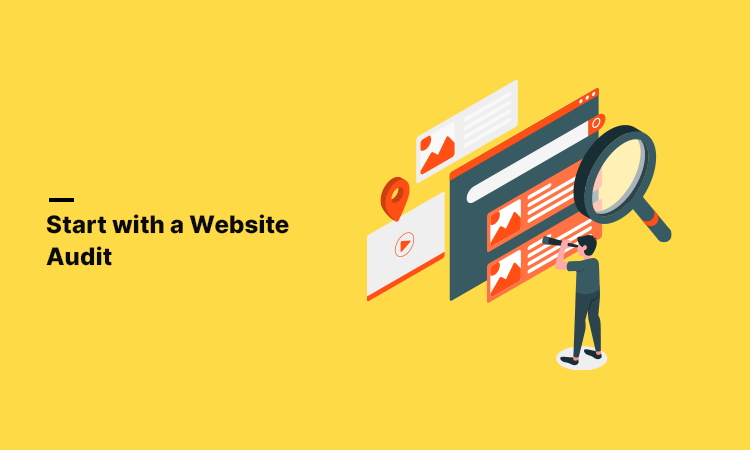
A thorough website audit will give you a comprehensive idea of the key performance indicators (KPIs). It will provide you with valuable insights and point out the possible cause of low rankings in the search results.
A website audit is necessary for all websites if you are starting with the SEO process. You can begin by using the Google search console, a free tool to get an audit. Other premium tools for SEO audit include ScreamingFrog, SEMrush, Ahrefs, and Moz.
Get a wholesome 360-degree audit. It is essential to understand all the aspects of the website before planning an SEO strategy. Once you obtain the results, look for underlying issues with the on-page, technical, or Local SEO of your website.
Find Niche-Specific Keywords for Boosting Rank
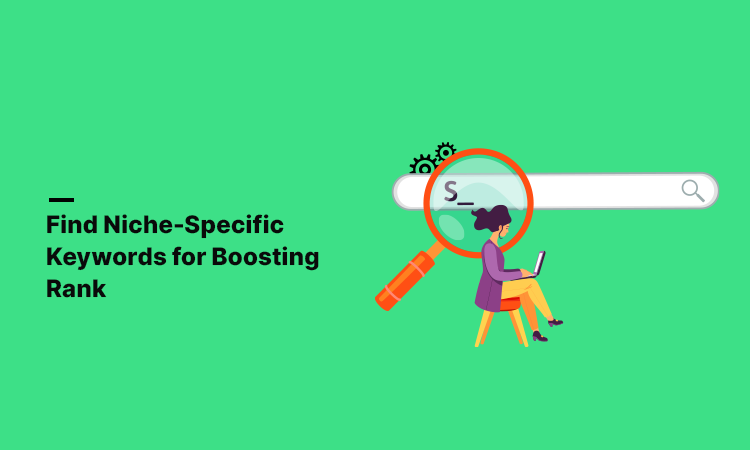
keyword research is fundamental to on-page SEO efforts. In the education industry, online visibility is becoming more and more imperative. And to boost your ranking, targeting keywords is necessary.
However, these can’t be any words or set of words. Targeting keywords fetches results only when people are searching for these terms on the search engine. Hence, use a keyword research tool to find relevant keywords that have a high search volume.
You would hit the golden spot if you could find keywords that have high search volume and low competition.
Write Search Term Dense Titles & Headings

Sounding erudite in the headings of your website content can be great. It would pose you as a worthy instructor in the eyes of prospective students. But, the efforts would be worthless if they did not have keywords infused in them.
Using keywords in the headings makes it easier for search engine crawlers to catalog your webpage. It also makes it easier for the students to scan through as the content looks more relevant and structured.
While creating titles and headings, you will have to understand the student search intent. For example, you are offering a degree course in computer science as a part of the higher education program. Incorporating the right keyword in the title is essential.
In this case, the ”computer science course” has a search volume of 18.1K with a relatively lower KD (keyword difficulty). This term is rather generic and can be incorporated into titles and headings with ease.
Now let’s consider the keyword ” degree in computer science” This organic keyword is rather more specific to what you are offering in your educational institution. But it has a higher keyword difficulty. Targeting this keyword, you have to be on your ace game to rank.
As we said earlier, there is no use of keywords that no one is searching. In this case, the keyword ”Degree course in computer science” has no significant search volume.
It does not align with the student search intent. Hence, there is no use in incorporating this one in the headings.
Unique Content Appeals to the Search Engine

For a high organic ranking, the website content has to be unique, lucid, and stellar!
There is no middle ground here as content quality is the #1 ranking factor; craft content that speaks to its readers. Want more student enrolment?
Get professionals to write convincing content that appeals to the students. As a higher education institution, you cannot afford to compromise in this aspect.
Superb content quality is not only important for prospective students, it is also critical for search engines. With a multitude of updates, Google can easily recognize the content that exhibits quality and the ones that are otherwise.
The rule of thumb here is to keep the prospects who would view the website via mobile phones. Try writing website content in ‘active voice.’ use shorter sentences, shorter paragraphs, etc.
Never resort to unethical writing practices. Website content, irrespective of the operation area, should be unique. Craft original content and eliminate plagiarism.
There isn’t any exact percentage of required original content prescribed by the search engines. However, it is better to keep a minimum of 97% original content for every piece you write.
Strategically Placed Terms Pump Up Search rankings
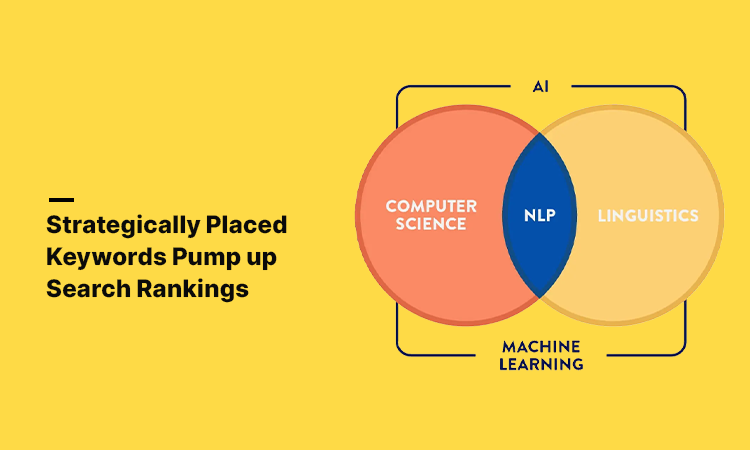
There is something called ”natural language processing” that Google is taking heed of in recent times.
Hence, just using keywords in the right volume anywhere in the content body won’t cut it anymore. You have to punctuate your web pages with keywords in a strategic manner.
As there is no set pattern or molds of keyword usage in the website content body that assures organic ranking. However, we can safely say that maintaining a healthy keyword density can add to the chances of ranking on the Google search.
Also, we have observed that placing main keywords in the introductory paragraph fetches results.
Another way to boost the volume of website traffic is by leveraging LSI keywords in the content. Latent Semantic Indexing keywords make your content more contextually relevant by matching it with the student’s search intent.
Add Internal Links in the Content Body
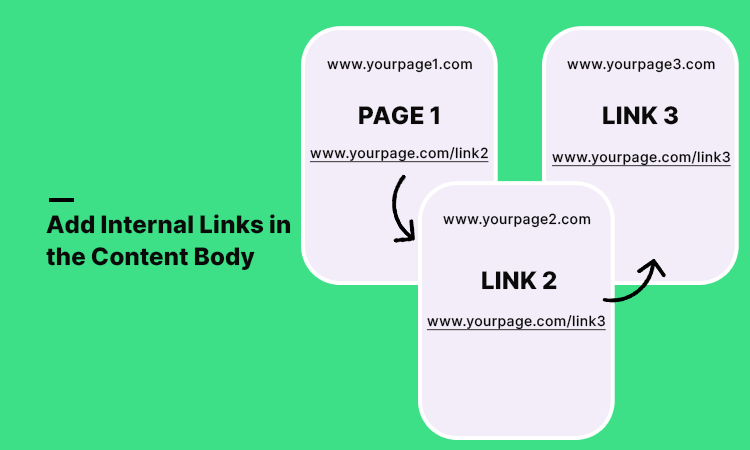
Internal links are useful in the grand scheme of search engine optimization for higher education institutions. Each caters positively to your SEO strategy.
Internal links are hyperlinks on the content that take the visitor to another page of your own site.
These links help users explore other pages on your website. They also help search engines understand your website and crawl multiple pages at once, boosting the ranks of both pages.
A few practices for effective internal linking are;
- Select the appropriate anchor text
- Don’t link two pages to the same anchor text
- Place the link(s) towards the top of the page
Infuse the Content with a Healthy Amount of External Links
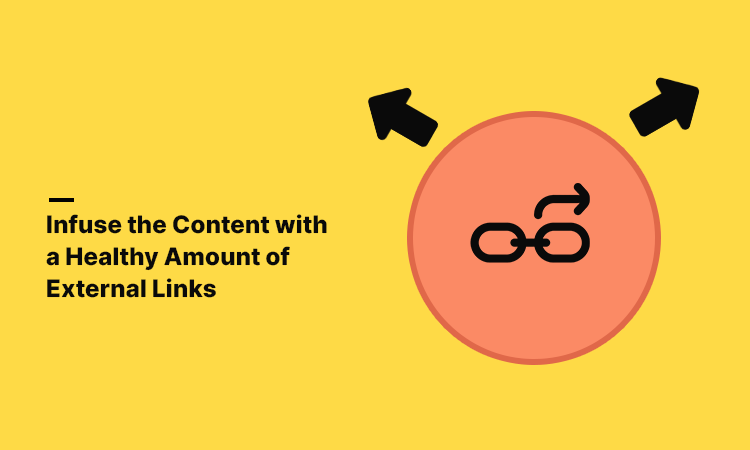
External links or outbound links, on the other hand, serve the purpose of boosting your domain authority. These are hyperlinks that point toward other domains.
These links help the search engines better understand your website’s niche and catalog it in the high EEATs (experience, expertise, authoritativeness, and trustworthiness.
Some of the best practices for external links are;
- Link to reputable and relevant sources
- External files should open in a different tab
- Refrain from linking to competitors
Optimize URLs for Faster Indexation
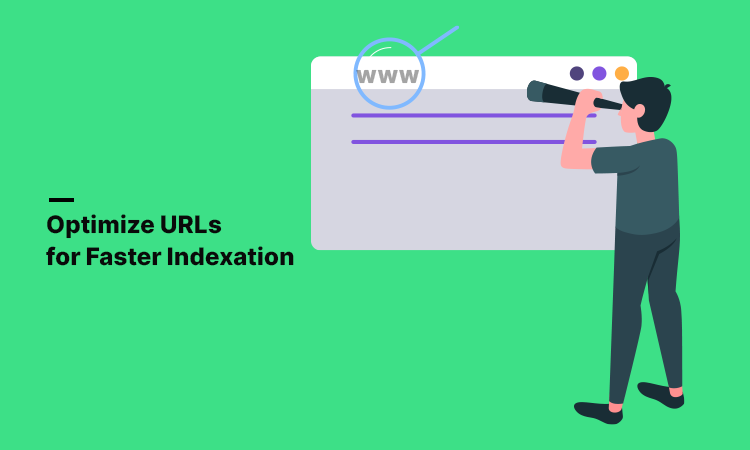
SEO for URLs implies refining the structure so that it is easily readable by search engines.
As an education Institution that aims to have better organic footfall, try avoiding unnecessarily long URLs. That is the first rule. It hinders the process of indexation.
Instead, write descriptive URLs with proper slug and permalink. This helps categorize the web pages easily
2. Get More Referral Traffic & Domain Authority with Off Page SEO Efforts
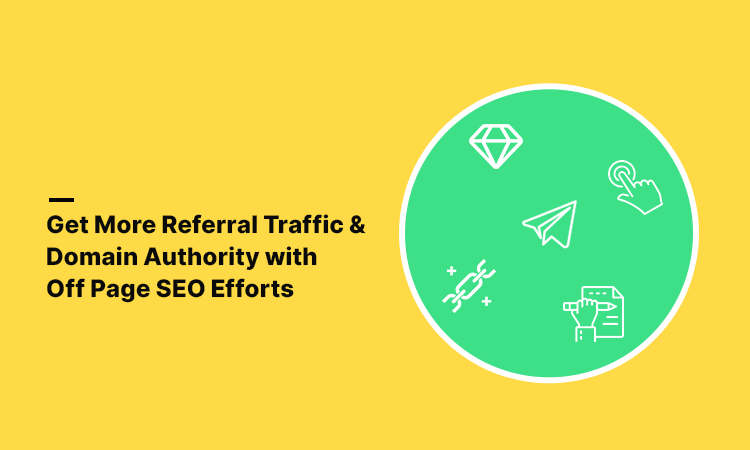
The Off-page SEO strategy is as important as the on-page. The off-page SEO strategies for a higher education website consist of efforts that aim to generate organic traffic. However, the efforts exist outside of the periphery of the website.
Elevating off-page SEO for higher ed websites involves backlink building, guest posting, social media marketing, enlisting in directories, etc.
Let us discuss the various ways you can augment the Off-page SEO to accentuate referral traffic volume on your website.
Publish guest posts on Authoritative Sites.
Guest posting is the practice of writing blog posts that are published on another website to attract organic traffic. It is a simple off-page strategy that requires reaching out to websites of relevant niches.
As a higher education institution, guest posting can be immensely beneficial for organic search results. It also improves brand awareness, establishes authority, improves credibility, and adds credible backlinks to the portfolio.
Engage in Press Releases
A press release is one of the most powerful higher education SEO strategies. Educational institutions that engage in press releases get the vantage point of communicating with a wider range of students.
Considering your target audience is the student section, engaging in the press release is a good idea as they tend to read about academic institution to choose the best one that suits requirements.
However, there is a way to go about a press release if you want it to work in your favor as an off-page SEO strategy. First, give the most important information.
As there is tough competition in this domain, students have no dearth of options. They would take a pass at your press release if you write it in a descriptive manner. Come to the point in the very first para of the post.
You can accentuate the middle with secondary details like quotes or other stuff. Conclude the press release with a boilerplate, a CTA (call to action), and a finishing paragraph to make the most of this SEO strategy.
Enlist Website in Education Directories
Students often visit educational directories in search of finding the best educational institution. These directories are helpful for students as they offer concise information in the form of a listicle. Students can explore their options and choose the best.
Enlisting in a directory gives the educational institution a better online exposure. If a website can rank in the top 10 results of an online directory, it can expect considerable referral traffic.
Develop a Solid Social Media Marketing Strategy
Gen Z students love being on social media. According to data, 97% of students use social media daily for 6 to 8 hours. Higher ed websites can use these staggering statistics to their advantage to generate a better volume of organic footfall on their website pages.
All you have to do is maintain a steady social media marketing strategy. Create a page on every major social media and run branding campaigns on them to come into the limelight. This can boost organic traffic and generate valuable, natural, user-generated backlinks.
Create Your Page on Encyclopedic Websites
Encyclopedic pages offer a sea of information about most institutions. This step would enable students to come across more information about the institution. Make sure not to be limited to Wikipedia. Other Wikipedia alternatives are equally effective. This is a clever SEO tactic that can generate qualified leads.
However, all information on your website is on the main page of your higher education website. However, obtaining information from a third-party source establishes better credibility. Creating these pages is simple. Just go to the respective website and tap on ‘create entry’.
Linking the higher education website is an important part of here. Remember to give accurate information and update the pages from time to time.
3. Technical SEO for Higher Education Elevate User Experience
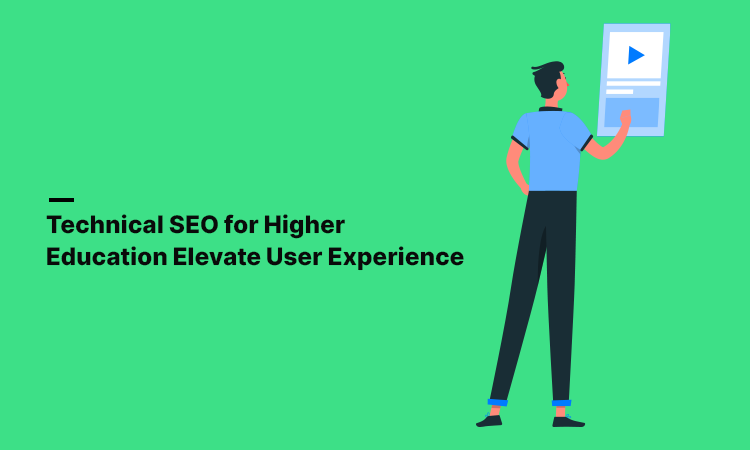
Technical SEO for higher education implies gearing websites in a way that makes it easy for web crawlers to search, read, and index the websites to boost organic search traffic.
Upgrading technical aspects of the website also includes elevating the user experience so that the website is easier on the eyes and saves prospective students time.
Let’s take a look at the most important aspects of technical SEO for higher education websites;
Run a Technical Audit
A technical audit would give you insights regarding all aspects of the technical SEO that is currently hardwired into your edu website. Working on these areas can lead to a higher rank on the search engine results. You can use Google Analytics as a free tool to track the core issues.
A technical SEO audit will highlight issues such as mobile optimization, crawl ability, core web vitals, and overall site performance. Once you obtain these valuable insights, you can optimize the technical aspects for better search rankings.
Mobile Optimization
According to Statista, in the last quarter of 2023 approximately 58.67% of web traffic came from mobile. Also, remember that Google’s mobile-first indexation means that the mobile version of your website gets indexed first. Hence, it is your prior responsibility to cater to this major segment of traffic as it is one of the major ranking factors.
A mobile-optimized website for higher education will face fewer challenges to find its way to the top of Google search results.
Let’s cover the basics of mobile SEO for higher education websites. First, understand the mobile traffic and the student’s search intent. After you have a thorough knowledge of it, develop a responsive website that adapts to several screen sizes.
The essence of mobile optimization should seep into your content as well. Write shorter paras and sentences. Optimize the image size accordingly and resort to best practices to rank higher.
Page Speed Optimization
Page speed optimization is the conclusive practice of minimizing your website loading time. It caters positively to website visitors and brings down the bounce rate.
You can start by running a free page speed test of your higher ed website and check the test results. It will give you a glimpse of how the core web vitals are performing.
Reclaim Broken Links for Better User Experience
Broken links are detrimental to the search engine optimization of your education website. broken links are links that direct towards resources that do not exist. It wastes the precious time of students and is an obstacle to the seamless user experience.
In case a link is broken on your website, fix the broken link. If there is a broken link on another site that points towards your site, reach out to the webmaster with a fresh post for updating the link. This way you can fix the technical SEO of your website if there are any.
Voice Search Optimization Saves Student’s Time
Voice search is trending with students of the new age as they search for new ways to find things quickly. And so, voice search optimization is one of the best SEO tactics to rank in the search engine results pages.
Optimizing your website for voice search will ensure that your website ranks on the search results when prospective students voice search using keywords like ”best higher education academy,‘ ‘best institution for a degree program,’ in any particular pedagogy subject.
Monitor and Tweak SEO
SEO for higher education is not a one-time job. It requires persistence. The search engine rankings keep changing as time passes as Google indexes fresh and upgraded content. If you leave a top-ranking webpage for one year, the ranking will likely drop.
It is important to keep a tab on the Google search console. This free application by Google allows you to gain insight into all the underlying issues.
Run a website audit occasionally to be on the safer side. You can use Google Analytics or any other SEO audit tool like SEMrush, SE Ranking, or Ahrefs.
Once you find some loopholes in your website’s SEO strategy, tweak it immediately. You will see a change in rankings. If you do a good job, the Google rankings will go up. In case you mess up, expect a dip in the rankings.
Why Should Higher Education Industry Hire an Expert SEO Company?

SEO for higher education is not a cakewalk. It takes time, effort and persistence. To add to the difficulty, it is not a one-time job either. The rankings are volatile and can fluctuate with every other Google algorithm change.
Hiring an expert agency can help you in more than one way. Let’s take a look at the advantages of hiring an SEO company for higher education SEO.
Niche Expertise
An expert SEO company that hails in the industry for a long time has the necessary skill set to optimize SEO. Many of the best SEO companies have experts for a specific niche. As a higher education institution, try finding a company that specializes in optimizing SEO for educational websites.
Let’s You Focus on Core Practice
Running a higher education institution can be a challenge in itself. You have a hundred works at hand, like student enrolment, making an academic calendar, monitoring student performance, etc. Optimizing SEO for your website can be a challenge, especially when you have a time crunch. With an SEO agency by your side, you can utilize your time on things that you do the best.
Generates More Profit
Devising an SEO strategy requires an investment of a good chunk of your time. However, it is a game of trial and error. Even after putting in the hardest efforts, you may not rank at the top of the SERP. An agency that specializes in SEO for educational institutions like colleges and universities will fetch results faster. A good ranking on the search results can send more qualified leads your way, which translates to more profit.
Always Keep a Tab on the Website Performance
Another pivotal reason to hire an SEO agency for higher education website SEO is that they will always keep a tab on the performance of your website. SEO experts keep an eye on the Google search console to monitor the website performance. Based on the insights, they take necessary action.
Wrapping Up
Search engine optimization is a basic digital marketing strategy for higher education institutions. The three distinctive parts are on-page, off-page, and technical SEO. If you are new to SEO, ensure to perform an SEO audit to find out the root cause of low ranking.
To boost the ranking on the search engine results pages, follow a keyword research and placement strategy. Write unique and engaging content that interests the student.
We hope these higher education SEO tips will help you in the journey of optimizing your website for better rankings. However, if you are tied up in the core business area, you can count on an expert SEO company to do the job perfectly!
Additional Resources:
- Why Is SEO Important to a Business?
- Top 20 Local SEO Tips to Boost Your Local Search Rankings in 2023


